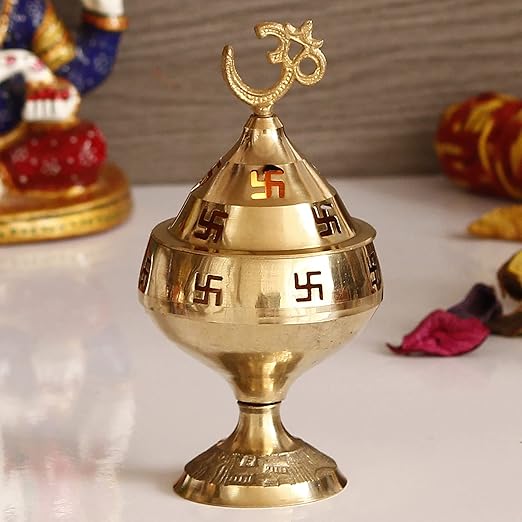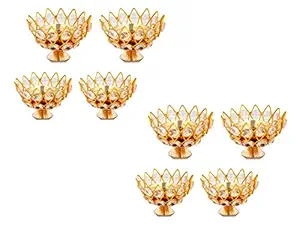परिचय: जन्माष्टमी, जिसे कृष्ण जन्माष्टमी भी कहा जाता है, एक महत्वपूर्ण हिंदू त्योहार है जो भगवान श्रीकृष्ण के जन्म की खुशी में मनाया जाता है। यह त्योहार भाद्रपद मास की कृष्ण पक्ष की अष्टमी तिथि (अगस्त-सितंबर) को मनाया जाता है। पूरे भारत और विश्वभर के हिंदू समुदायों द्वारा इस त्योहार को बड़ी श्रद्धा और भक्ति के साथ मनाया जाता है।
ऐतिहासिक महत्व:
- भगवान श्रीकृष्ण का जन्म: जन्माष्टमी भगवान श्रीकृष्ण के दिव्य जन्म की स्मृति में मनाई जाती है, जो मथुरा में देवकी और वासुदेव के घर हुआ था। उनका जन्म उनके मामा, राजा कंस की क्रूरता समाप्त करने के लिए हुआ था। कंस ने उनके माता-पिता को कारागार में डाल दिया था और कृष्ण की हत्या करने की योजना बनाई थी। कृष्ण को कंस से बचाने के लिए, वासुदेव ने उन्हें रात को गोकुल में नंद और यशोदा के पास सुरक्षित स्थान पर ले जाने के लिए यमुना नदी पार की थी।
- महाभारत में भूमिका: भगवान श्रीकृष्ण ने महाभारत में महत्वपूर्ण भूमिका निभाई, पांडवों को विजय की ओर मार्गदर्शन किया और कुरुक्षेत्र के युद्ध में अर्जुन को भगवद गीता का उपदेश दिया। गीता में उनके उपदेश आज भी लाखों लोगों के लिए आध्यात्मिक मार्गदर्शन का स्रोत हैं।
सांस्कृतिक महत्व:
- दही हांडी: जन्माष्टमी से जुड़ी एक लोकप्रिय परंपरा, विशेषकर महाराष्ट्र और गुजरात में, दही हांडी के रूप में मनाई जाती है। इसमें दही, मक्खन और अन्य डेयरी उत्पादों से भरे मटके को ऊँचाई पर लटकाया जाता है। युवा पुरुष मानव पिरामिड बनाकर मटके तक पहुँचते हैं और उसे तोड़ते हैं, जो भगवान कृष्ण के मक्खन प्रेम और उनके नटखट स्वभाव का प्रतीक है।
- रास लीला: वृंदावन और मथुरा जैसे क्षेत्रों में रास लीला का आयोजन किया जाता है, जिसमें कृष्ण और गोपियों के साथ उनके नटखट क्रियाकलापों का चित्रण किया जाता है। यह नाटकीय प्रदर्शन जन्माष्टमी की प्रमुख आकर्षणों में से एक है।
- मध्यरात्रि उत्सव: चूंकि भगवान कृष्ण का जन्म मध्यरात्रि में हुआ था, इसलिए जन्माष्टमी के मुख्य अनुष्ठान और उत्सव रात के समय होते हैं। मंदिरों और घरों को सजाया जाता है, और भक्त मध्यरात्रि की पूजा के लिए इकट्ठा होते हैं। भगवान कृष्ण की मूर्ति को स्नान कराया जाता है, नए वस्त्र पहनाए जाते हैं और पालने में रखा जाता है, जिसे भक्त धीरे-धीरे झुलाते हैं।
रिवाज और उत्सव:
- व्रत: जन्माष्टमी के दिन भक्त कठोर व्रत रखते हैं, आमतौर पर दिन भर केवल फल और दूध का सेवन करते हैं। व्रत केवल मध्यरात्रि के अनुष्ठानों के बाद ही तोड़ा जाता है।
- भजन और कीर्तन: मंदिरों और घरों में भगवान कृष्ण के भजन और कीर्तन गाए जाते हैं। यह गीत-संगीत रातभर चलता है, जिससे आध्यात्मिक वातावरण बनता है।
- मंदिर सजावट: मंदिरों को फूलों, रोशनी और सुंदर सजावट से सजाया जाता है। विशेष पूजा का आयोजन होता है और कृष्ण की मूर्ति को आभूषण और वस्त्रों से सजाया जाता है।
- झूला उत्सव: भारत के कुछ हिस्सों में झूला उत्सव मनाया जाता है, जिसमें झूलों को सजाया जाता है और भगवान कृष्ण की मूर्ति को उन पर रखा जाता है। भक्त पालने को झुलाते हैं और कृष्ण की स्तुति में गाने गाते हैं।
आधुनिक समय में जन्माष्टमी: आधुनिक समय में, जन्माष्टमी को पूरे विश्व में समान उत्साह के साथ मनाया जाता है। यह त्योहार विस्तृत अनुष्ठानों, सांस्कृतिक प्रदर्शन और सामुदायिक आयोजनों के साथ मनाया जाता है। दही हांडी और रास लीला जैसे पारंपरिक उत्सव सभी आयु समूहों को आकर्षित करते हैं, जिससे यह एकता और भक्ति का समय बन जाता है।
Introduction
Overview of Janmashtami
Janmashtami is the festival celebrating the birth of Lord Krishna observed with devotion and joy across India.
Significance of Janmashtami
The festival signifies the victory of good over evil and the divine play of Lord Krishna on Earth.
Historical Background
Janmashtami has been celebrated for centuries with rituals devotional songs and reenactments of Krishna’s life.
Importance of Devotion
Devotees observe Janmashtami with fasting prayers and singing bhajans to seek Lord Krishna’s blessings.
Family and Community Bonding
Janmashtami strengthens family and community ties through collective prayers celebrations and cultural activities.
Festive Rituals
Night Vigil and Puja
Devotees observe a night vigil perform puja and recite Krishna mantras to celebrate his birth.
Fasting Practices
Fasting during Janmashtami is observed to purify the mind body and soul and enhance spiritual devotion.
Dahi Handi Celebration
Communities organize Dahi Handi events depicting Krishna’s playful acts promoting teamwork and devotion.
Decorations and Altar Setup
Homes and temples are decorated with flowers lights and idols of Lord Krishna for worship.
Recitation of Bhajans and Shlokas
Singing bhajans and reciting shlokas invoke divine blessings and create a devotional atmosphere.
Spiritual Significance
Krishna Leelas and Teachings
Janmashtami teaches moral lessons devotion and the importance of righteousness through Krishna’s life stories.
Symbolism of Krishna’s Birth
The birth of Lord Krishna symbolizes hope joy and divine guidance for humanity.
Devotion and Bhakti
Participating in Janmashtami rituals deepens faith love and devotion toward Lord Krishna.
Overcoming Negativity
Janmashtami inspires devotees to overcome evil tendencies and cultivate positive values.
Community Harmony
The festival fosters unity cooperation and harmony within communities through collective celebrations.
Preparation and Planning
Home Cleaning and Decoration
Homes are cleaned and decorated with flowers and lights to create a sacred and welcoming environment.
Buying Puja Materials
Devotees prepare idols offerings and prayer materials in advance for smooth celebrations.
Organizing Cultural Events
Community groups plan bhajan sessions Krishna leela enactments and Dahi Handi events for engagement.
Planning Fasting and Rituals
Devotees schedule fasting and puja timings to observe Janmashtami meaningfully and spiritually.
Safety Precautions
Precautions are taken during celebrations Dahi Handi and night events to ensure a safe festival.
Cultural Celebrations
Regional Variations
Janmashtami is celebrated differently across India with unique customs in various regions.
Folk Songs and Dances
Traditional songs and dances celebrate Krishna’s birth and enhance the cultural spirit of the festival.
Special Rituals
Communities observe specific rituals such as midnight puja devotional singing and storytelling of Krishna leelas.
Community Gatherings
Local events fairs and collective worship create joy participation and devotion during Janmashtami.
Global Celebrations
Janmashtami is celebrated worldwide by Indian communities spreading awareness of Hindu culture and traditions.
Janmashtami is the festival celebrating the birth of Lord Krishna observed with devotion and joy across India.
The festival signifies the victory of good over evil and the divine play of Lord Krishna on Earth.
Janmashtami has been celebrated for centuries with rituals devotional songs and reenactments of Krishna’s life.
Devotees observe Janmashtami with fasting prayers and singing bhajans to seek Lord Krishna’s blessings.
Janmashtami strengthens family and community ties through collective prayers celebrations and cultural activities.
Devotees observe a night vigil perform puja and recite Krishna mantras to celebrate his birth.
Fasting during Janmashtami is observed to purify the mind body and soul and enhance spiritual devotion.
Communities organize Dahi Handi events depicting Krishna’s playful acts promoting teamwork and devotion.
Homes and temples are decorated with flowers lights and idols of Lord Krishna for worship.
Singing bhajans and reciting shlokas invoke divine blessings and create a devotional atmosphere.
Janmashtami teaches moral lessons devotion and the importance of righteousness through Krishna’s life stories.
The birth of Lord Krishna symbolizes hope joy and divine guidance for humanity.
Participating in Janmashtami rituals deepens faith love and devotion toward Lord Krishna.
Janmashtami inspires devotees to overcome evil tendencies and cultivate positive values.
The festival fosters unity cooperation and harmony within communities through collective celebrations.
Homes are cleaned and decorated with flowers and lights to create a sacred and welcoming environment.
Devotees prepare idols offerings and prayer materials in advance for smooth celebrations.
Community groups plan bhajan sessions Krishna leela enactments and Dahi Handi events for engagement.
Devotees schedule fasting and puja timings to observe Janmashtami meaningfully and spiritually.
Precautions are taken during celebrations Dahi Handi and night events to ensure a safe festival.
Janmashtami is celebrated differently across India with unique customs in various regions.
Traditional songs and dances celebrate Krishna’s birth and enhance the cultural spirit of the festival.
Communities observe specific rituals such as midnight puja devotional singing and storytelling of Krishna leelas.
Local events fairs and collective worship create joy participation and devotion during Janmashtami.
Janmashtami is celebrated worldwide by Indian communities spreading awareness of Hindu culture and traditions.


